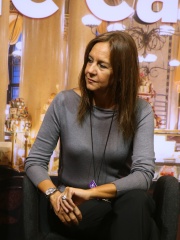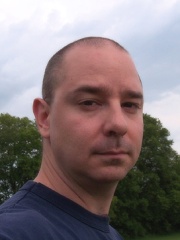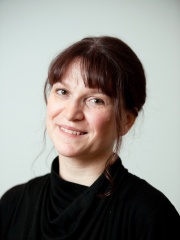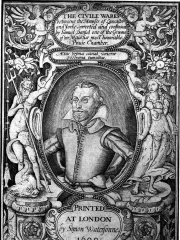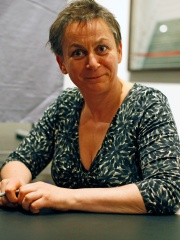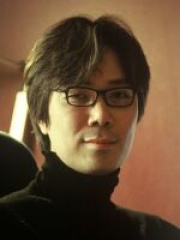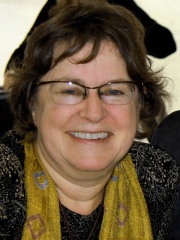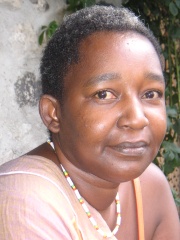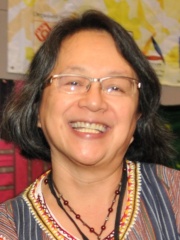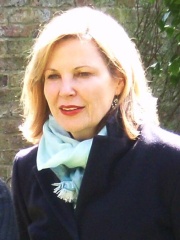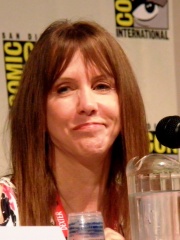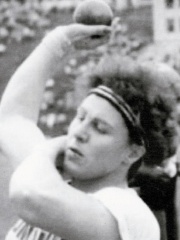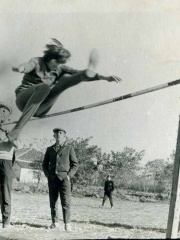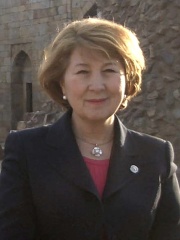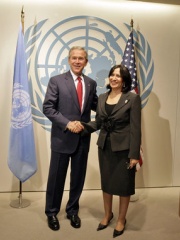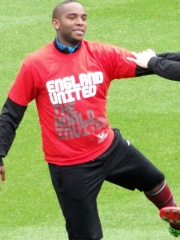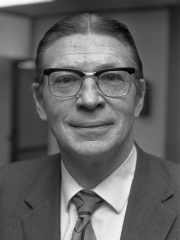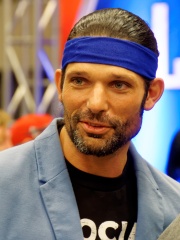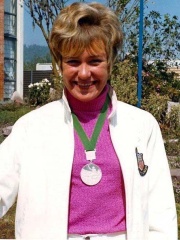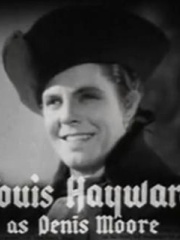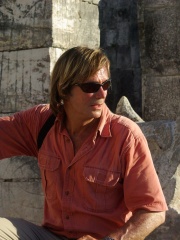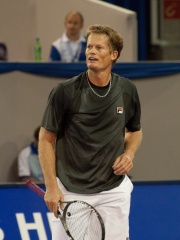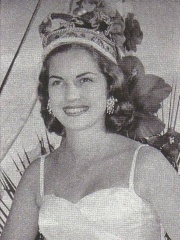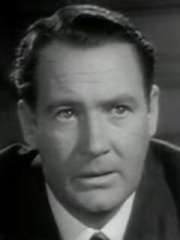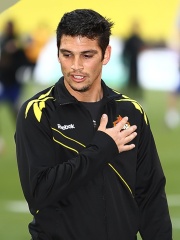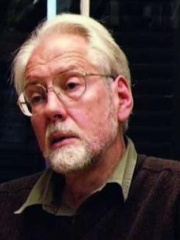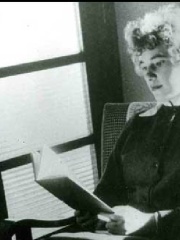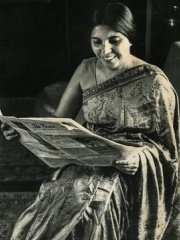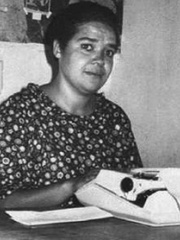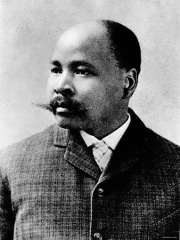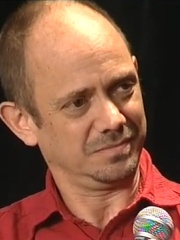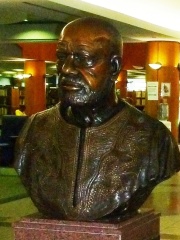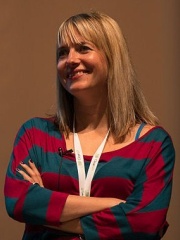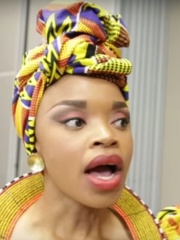WRITER
Antjie Krog
1952 - Today
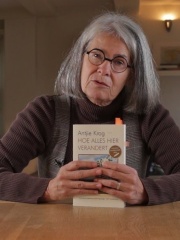
 Antjie Krog
Antjie Krog
Antjie Krog (born 1952) is a South African writer and academic, best known for her Afrikaans poetry, her reporting on the Truth and Reconciliation Commission, and her 1998 book Country of My Skull. In 2004, she joined the Arts faculty of the University of the Western Cape as Extraordinary Professor. Read more on Wikipedia
Her biography is available in 21 different languages on Wikipedia (up from 16 in 2024). Antjie Krog is the 6,578th most popular writer (down from 6,100th in 2024), the 232nd most popular biography from South Africa (down from 174th in 2019) and the 22nd most popular South African Writer.
Memorability Metrics
Page views of Antjie Krog by language
Among WRITERS
Among writers, Antjie Krog ranks 6,578 out of 7,302. Before her are María Dueñas, John Scalzi, Sabine Baring-Gould, Didier Van Cauwelaert, Merethe Lindstrøm, and Pat Conroy. After her are Samuel Daniel, Anne Enright, Kim Young-ha, Karen Joy Fowler, Khady Sylla, and P. C. Cast.
Most Popular Writers in Wikipedia
Go to all RankingsMaría Dueñas
1964 - Present
HPI: 49.47
Rank: 6,572
John Scalzi
1969 - Present
HPI: 49.46
Rank: 6,573
Sabine Baring-Gould
1834 - 1924
HPI: 49.46
Rank: 6,574
Didier Van Cauwelaert
1960 - Present
HPI: 49.46
Rank: 6,575
Merethe Lindstrøm
1963 - Present
HPI: 49.45
Rank: 6,576
Pat Conroy
1945 - 2016
HPI: 49.45
Rank: 6,577
Antjie Krog
1952 - Present
HPI: 49.44
Rank: 6,578
Samuel Daniel
1562 - 1619
HPI: 49.44
Rank: 6,579
Anne Enright
1962 - Present
HPI: 49.41
Rank: 6,580
Kim Young-ha
1968 - Present
HPI: 49.41
Rank: 6,581
Karen Joy Fowler
1950 - Present
HPI: 49.41
Rank: 6,582
Khady Sylla
1963 - 2013
HPI: 49.41
Rank: 6,583
P. C. Cast
1960 - Present
HPI: 49.40
Rank: 6,584
Contemporaries
Among people born in 1952, Antjie Krog ranks 691. Before her are Sanny Åslund, Victoria Tauli-Corpuz, Lisa Eichhorn, Jesús Martínez, Laraine Newman, and Mihaela Loghin. After her are Walter Mantegazza, Carlo Montano, Nina Zyuskova, Allan Wells, Zilya Valeeva, and Haya Rashed Al-Khalifa.
Others Born in 1952
Go to all RankingsSanny Åslund
SOCCER PLAYER
1952 - Present
HPI: 49.53
Rank: 685
Victoria Tauli-Corpuz
SOCIAL ACTIVIST
1952 - Present
HPI: 49.48
Rank: 686
Lisa Eichhorn
ACTOR
1952 - Present
HPI: 49.48
Rank: 687
Jesús Martínez
SOCCER PLAYER
1952 - Present
HPI: 49.47
Rank: 688
Laraine Newman
ACTOR
1952 - Present
HPI: 49.47
Rank: 689
Mihaela Loghin
ATHLETE
1952 - Present
HPI: 49.45
Rank: 690
Antjie Krog
WRITER
1952 - Present
HPI: 49.44
Rank: 691
Walter Mantegazza
SOCCER PLAYER
1952 - 2006
HPI: 49.40
Rank: 692
Carlo Montano
ATHLETE
1952 - Present
HPI: 49.35
Rank: 693
Nina Zyuskova
ATHLETE
1952 - Present
HPI: 49.32
Rank: 694
Allan Wells
ATHLETE
1952 - Present
HPI: 49.31
Rank: 695
Zilya Valeeva
POLITICIAN
1952 - Present
HPI: 49.26
Rank: 696
Haya Rashed Al-Khalifa
DIPLOMAT
1952 - Present
HPI: 49.23
Rank: 697
In South Africa
Among people born in South Africa, Antjie Krog ranks 232 out of 454. Before her are Benni McCarthy (1977), Beyers Naudé (1915), Adam Rose (1979), Jerome Damon (1972), Lillian Board (1948), and Louis Hayward (1909). After her are Austin Stevens (1950), Wayne Ferreira (1971), Penelope Coelen (1940), Ian Hunter (1900), Mark González (1984), and Ernie Pieterse (1938).
Others born in South Africa
Go to all RankingsBenni McCarthy
SOCCER PLAYER
1977 - Present
HPI: 49.58
Rank: 226
Beyers Naudé
SOCIAL ACTIVIST
1915 - 2004
HPI: 49.57
Rank: 227
Adam Rose
WRESTLER
1979 - Present
HPI: 49.47
Rank: 228
Jerome Damon
REFEREE
1972 - Present
HPI: 49.46
Rank: 229
Lillian Board
ATHLETE
1948 - 1970
HPI: 49.45
Rank: 230
Louis Hayward
ACTOR
1909 - 1985
HPI: 49.44
Rank: 231
Antjie Krog
WRITER
1952 - Present
HPI: 49.44
Rank: 232
Austin Stevens
BIOLOGIST
1950 - Present
HPI: 49.43
Rank: 233
Wayne Ferreira
TENNIS PLAYER
1971 - Present
HPI: 49.41
Rank: 234
Penelope Coelen
CELEBRITY
1940 - Present
HPI: 49.30
Rank: 235
Ian Hunter
ACTOR
1900 - 1975
HPI: 49.26
Rank: 236
Mark González
SOCCER PLAYER
1984 - Present
HPI: 49.26
Rank: 237
Ernie Pieterse
RACING DRIVER
1938 - 2017
HPI: 49.19
Rank: 238
Among WRITERS In South Africa
Among writers born in South Africa, Antjie Krog ranks 22. Before her are Karel Schoeman (1939), Ingrid Jonker (1933), Fatima Meer (1928), Bessie Head (1937), John Langalibalele Dube (1871), and Damon Galgut (1963). After her are Muhsin Hendricks (null), Es'kia Mphahlele (1919), Lauren Beukes (1976), and Zoleka Mandela (1980).
Karel Schoeman
1939 - 2017
HPI: 53.14
Rank: 16
Ingrid Jonker
1933 - 1965
HPI: 53.05
Rank: 17
Fatima Meer
1928 - 2010
HPI: 52.96
Rank: 18
Bessie Head
1937 - 1986
HPI: 52.75
Rank: 19
John Langalibalele Dube
1871 - 1946
HPI: 50.12
Rank: 20
Damon Galgut
1963 - Present
HPI: 49.91
Rank: 21
Antjie Krog
1952 - Present
HPI: 49.44
Rank: 22
Muhsin Hendricks
HPI: 48.79
Rank: 23
Es'kia Mphahlele
1919 - 2008
HPI: 46.66
Rank: 24
Lauren Beukes
1976 - Present
HPI: 40.53
Rank: 25
Zoleka Mandela
1980 - 2023
HPI: 37.65
Rank: 26
